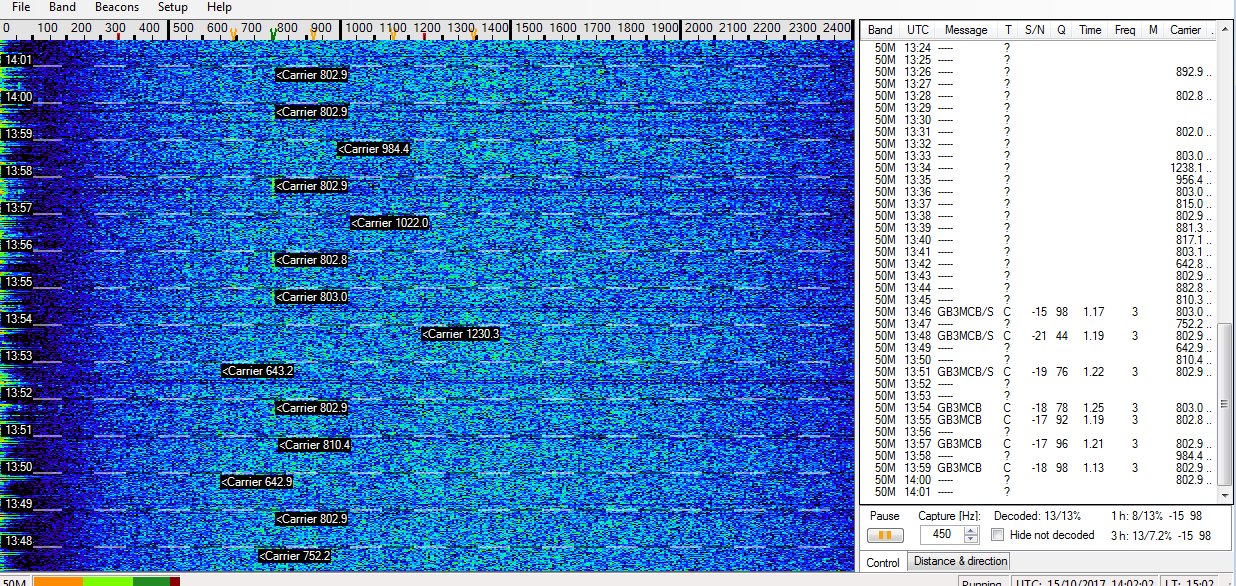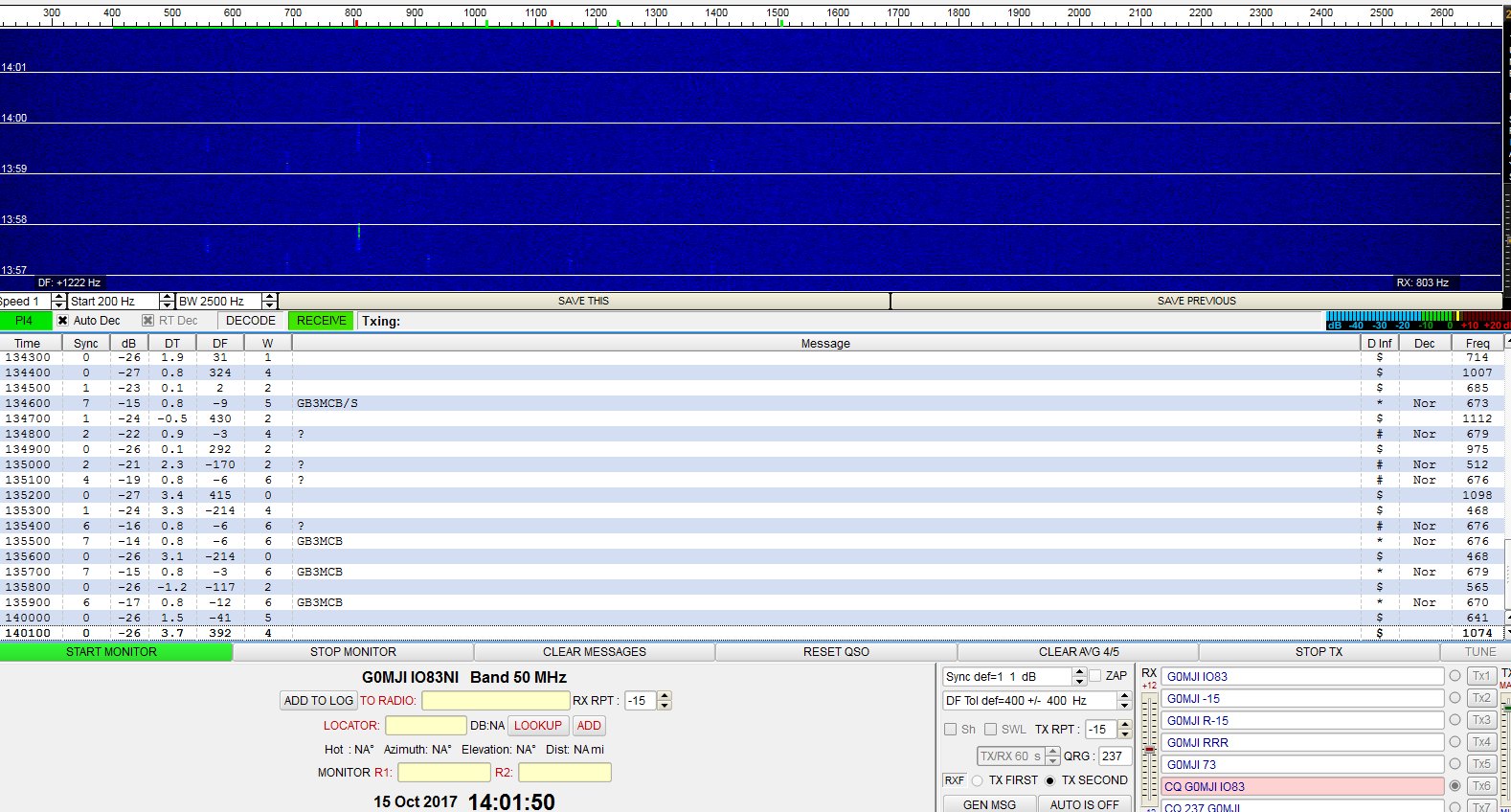
Update Nov 2017 PI-RX V MSHV 1.53
Here is a day's
monitoring of the 'faraway' (at this time of year) GB3CFG on
70mhz
PI-RX V MSHV 1.53 64 bit
Time/Spots of GB3CFG 6-11-17 at IO83NI
PI-RX
MSHV
09.10:
-26db
10.06:
-20db
10.06: -19db
10.46:
-19db
10.46: -21db
12.10: -19db
16.19:
31SOKUQU (false +)
What does this prove? I do not know. During the day both
programs were running simultaneously on the same quad core PC,
the same radio, the same Signalink input. Each program made 3
decodes, curiously not all of the decodes were at the same
time. Only MSHV made a false decode. So I guess you pays your
money and you makes your choice (metaphorically - both
freeware, thank you!). Of course I have no way of knowing how
running both programs at once affects each program. I think
the newer version of MSHV is likely as good as PI-RX


